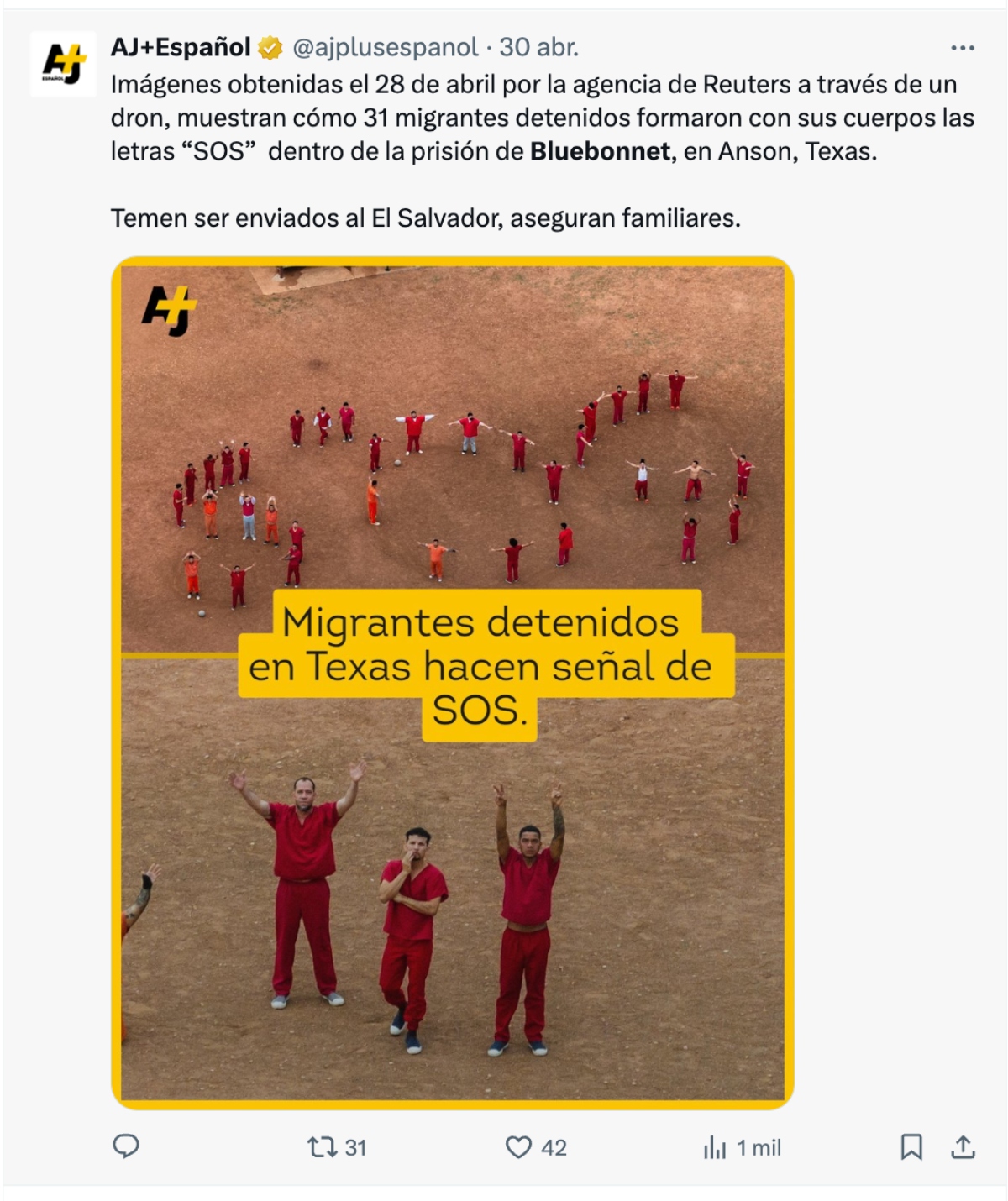The administration of President Donald Trump filed this Tuesday, May 13, a formal request to the U.S. Supreme Court to be allowed to resume the expulsions of more than 200 Venezuelan migrants currently being held in a detention center in Texas.
The case has generated widespread concern among human rights organizations, legal experts and migrant communities throughout the country.
The backdrop: blockades, protests and a prison in El Salvador

This new government request comes just over a month after the same court intervened on an emergency basis to block the migrants’ transfer to a prison in El Salvador.
It is the Terrorism Confinement Center (CECOT), a maximum security mega-prison known for its harsh conditions and accusations of human rights violations.
The center has been widely criticized by international organizations such as Human Rights Watch and Amnesty International.
According to documents filed with the Court, the Executive’s lawyers argue that the detainees represent an “operational risk” inside the detention center.
The government claims that 23 of the migrants barricaded themselves in a cell for several hours, threatening to take hostages and assault Immigration and Customs Enforcement (ICE) personnel.
Following this incident, these individuals were relocated to another prison in Texas, but the administration insists that their continued presence in the country represents a security threat.
Where are they being held and why are they of concern?
A Reuters drone captured detainees at the Bluebonnet immigrant detention center in Anson, Texas, spelling out a message to the outside world: S-O-S https://t.co/Oq1DzcQTKu pic.twitter.com/nUTtqkU46A
– Reuters (@Reuters) May 1, 2025
The migrants are being held at the Bluebonnet facility in Anson, Texas.
A few days ago, images captured by a drone showed several of them forming the letters “SOS” in the courtyard of the compound, in an apparent call for help.
Although the government points to them as alleged members of the criminal group Tren de Aragua, which emerged in Venezuelan prisons, legal defenders claim that there is insufficient evidence to justify these mass expulsions.
A Bloomberg analysis revealed that 90% of these men have no criminal record in the United States, which has raised alarms about the excessive use of war-like laws to deal with immigration cases.
The law being invoked: an 18th century standard

The Trump administration has turned to the Alien Enemies Act of 1798, a legal provision written during wartime, to justify the deportations.
This law allows for the expulsion of foreign nationals considered a threat to national security, although historically it has been used with extreme caution.
On April 19, the Supreme Court temporarily prohibited the application of this law in these cases, following a lawsuit by pro-immigrant organizations that denounced that the United States was attempting to transfer the detainees to El Salvador without due process.
An agreement with El Salvador under scrutiny

The plan includes a bilateral agreement between Washington and the government of Nayib Bukele, whereby the U.S. would pay $6 million annually to sustain the Salvadoran prison system in exchange for housing expelled migrants.
Details of the agreement have not been publicly disclosed, and the secrecy has fueled further criticism.
The case once again brings into discussion the limits of immigration policies in times of political tension, especially in a year where the Trump administration has stepped up measures to accelerate deportations, limit benefits and use national security language as legal justification.
What can the community do?
Legal organizations recommend that migrants stay informed, consult with accredited attorneys and avoid signing documents without understanding their contents, especially if they are in active immigration proceedings.
The Supreme Court’s ruling on this application is still pending.
But its impact – legal, political and human – could set a precedent for U.S. immigration policy in 2025.














